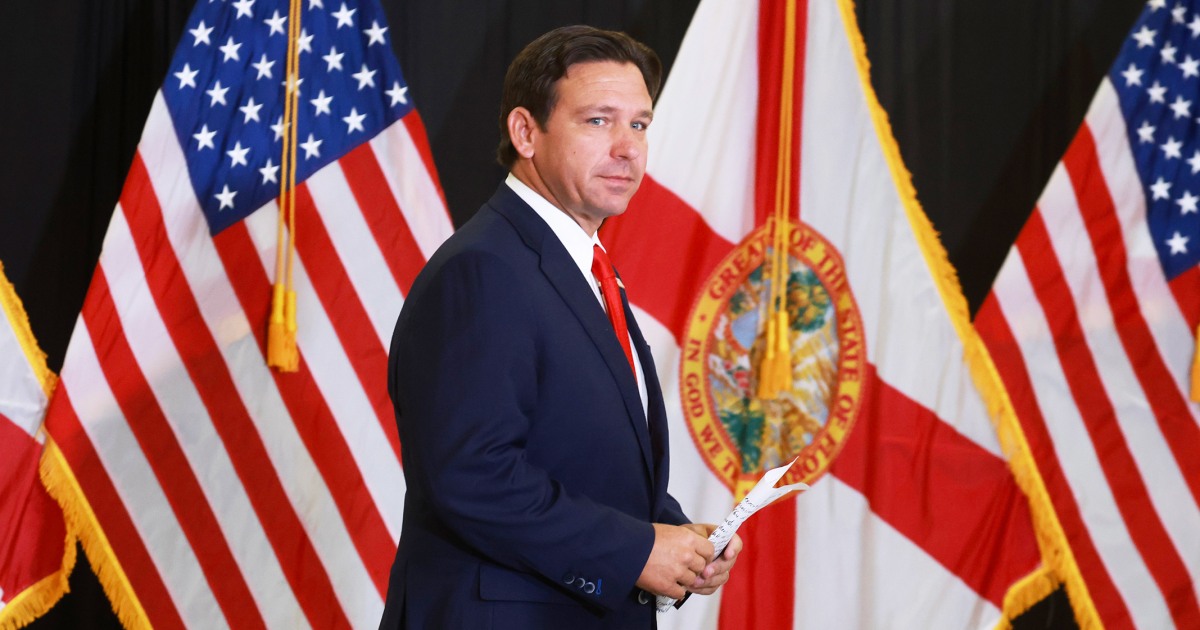Florida Gov. Ron DeSantis issued an executive order Tuesday directing state authorities to investigate Sunday’s apparent assassination attempt on former President Donald Trump. The governor downplayed the federal charges brought Monday against suspect Ryan Routh, saying, “To say you’re going to do a couple gun charges, that is not going to be sufficient to do it.”
Routh has been charged in federal court with two gun possession counts. But as I noted at the time, those aren’t necessarily the final word on his federal charges. Those charges might have just been the simplest that federal prosecutors in Florida could bring while the government investigates in advance of potentially bringing more serious charges later.
Yet DeSantis implied that the feds have not been doing everything they could — or that whatever they could do isn’t enough. The governor’s remarks cast doubt on the federal effort generally, suggesting it would be more appropriate for state authorities to take the lead.
Of course, it’s not unusual for both state and federal law enforcement to investigate potential crimes that could be charged in their respective courts. And double jeopardy rules don’t bar the same conduct from being charged at both levels.
But it could be counterproductive for DeSantis to create a wedge between the state and the feds if the goal is to bring the strongest possible case against Routh. To the extent that state and federal authorities don’t fully cooperate with one another, that could be inefficient at the investigative stage. It could also create potential issues at any eventual trial(s) if they aren’t on the same page and each side isn’t fully aware of evidence that the other has — or if their separate evidence is at all contradictory. Relatedly, neither state nor federal prosecutors should want a situation where one or the other is rushing to be first to bring the most serious charges.
And while DeSantis suggested that more serious crimes like attempted murder couldn’t be brought federally, that’s not necessarily so. Indeed, it wouldn’t be surprising if more serious charges are brought as the case proceeds in federal court while Routh remains in custody.
To be sure, attempted murder charges could face challenges at either the state or federal level, which may be why Routh wasn’t immediately charged with such a crime federally. That Routh apparently didn’t fire any shots before allegedly fleeing the scene would not prevent him from being charged with attempted murder. For example, Nicholas Roske, who’s charged with attempting to assassinate Supreme Court Justice Brett Kavanaugh, didn’t fire a weapon, though statements he allegedly made to law enforcement admitting his intentions may have made it easier to charge him quickly.
When it comes to the charge of attempted murder, the legal question is whether the defendant took a “substantial step” toward committing the crime, as opposed to “mere preparation.” Routh allegedly was lying in wait with a rifle at Trump’s golf course, so prosecutors may be able to prove an attempt. Prosecutors may be considering whether they have enough evidence to make that argument — or they may already feel confident that they can bring such a case, but given that Routh isn’t going anywhere while he’s being held on the gun charges, they feel they can take the time to collect evidence to build the case.
Whatever comes of the charges against Routh, any discrepancies that result from different law enforcement investigations moving forward could wind up working to his benefit in the end.
Subscribe to the Deadline: Legal Newsletter for updates and expert analysis on the top legal stories. The newsletter will return to its regular weekly schedule when the Supreme Court’s next term kicks off in October.


Leave a Reply